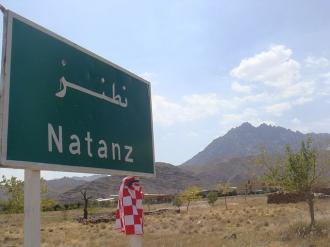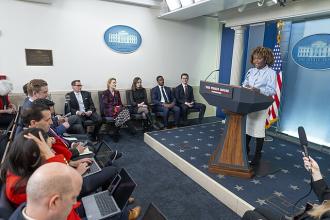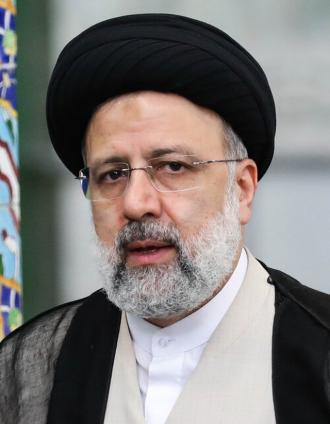Things were dire. A death sentence was handed down to an entire population. For the next thirty-eight years, they would aimlessly wander through hot desert sands without hope and without future. An unimaginable horror of inescapable death, life slowly ticking away amidst endless dunes. All horizons of hope and of opportunity were shuttered. Overnight, their entire world changed. They woke up to a dark and gloomy world, beyond promise and beyond dreams.
That “lost generation” squandered more than just their future. They lost their common narrative. Previously, they shared a common story: selected by Hashem, liberated from two centuries of slavery, they were in transit “on eagles' wings” to a land of destiny. Whatever their differences, they all shared one common "story".
That common story went up in flames. The desert, once a bridge to a future homeland, now mocked these solitary travelers, missing in time and adrift in history. Everything had to be rebuilt from the ground up. The past had vanished, and the future had to be remodeled.
The First “Shabbat Moment”
How would they establish new traditions and new meaning? The first test came quickly enough, and it surrounded a flagrant Shabbat violation. Shabbat observance had been a pre-mitzvah, delivered weeks before Sinai, even before mitzvoth became obligatory. It was a "trial" mitzvah selected because of its prehistoric resonance. Ideally, Shabbat observance would allow the young nation to slowly fashion traditions and religious culture. Observing Shabbat would build durable Jewish identity, capable of outlasting religious infidelity and indiscretion.
Sadly, the record of Shabbat observance in the desert wasn’t outstanding. The twentieth chapter of Yechezkel documents widespread and ongoing Shabbat violation. It was so dire that they formed “Shabbat patrols” to police Shabbat in the desert. In the immediate aftermath of the meraglim debacle, these patrols discovered a man violating Shabbat "in the fields". When most were sitting around the Shabbat table, he was busy in the fields. When most were praying and studying in the mishkan, he was roaming the desert.
How would this emergent and rebuilding society respond to this terrible Shabbat desecration? This was a “moment”, and their response would set the tone of their new society. The decisions they took would ripple far beyond this weekend. It would shape their future. Shabbat is that formative.
The Second “Shabbat Moment”
A similar crisis developed a little more than a thousand years later. Once again, we were in rebuild mode. Exiled from Israel for seventy years, we lost many of our national traditions. Returning to Israel and rebuilding the mikdash, we were also in the process of reconstituting national identity. Once again, Shabbat was the cultural and religious pivot, and once again it was being was grossly violated. Apparently, newly emergent societies struggle with Shabbat observance. Without our prior “traditions” and without memories of the past, Shabbat observance isn’t natural or instinctive.
Nechemiah, the prophet was horrified at the scene: Shabbat in Yerushalayim was a bazaar of commerce and tradesmen. Frustrated and terribly worried about the long-term ramifications, he locked the doors of the city, banning merchants from entering, and forcing them to camp outside the city walls until the end of Shabbat.
When our traditions become misplaced, Shabbat observance declines. When we lose the continuity of tradition Shabbat suffers. So it was in the lost desert and so it was when we returned from the rivers of Babylon. So it always is, whenever we reboot community, family or identity. Shabbat isn’t a given.
But it is formative. It is a social tone-setter. As communities achieve greater Shabbat observance they religiously flourish. Shabbat observance becomes a “mile marker” on the road to communal and religious success.
My grandfather left white Russia as a teenager in the 1920's. He emigrated to Baltimore, which was known as the "Torah town" of the United States. It attracted immigrants serious about Torah and religious life. He attended what was generally regarded as the most religious Synagogue in town. In his Synagogue he launched a club which only attracted a few members. It was known as the "Shomer Shabbat" club! Given the six-day work week in the USA, Shabbat observance was rare. Shabbat is never easy during reboot mode.
Our “Moment”
We are currently in a mini-rebuild. The pandemic radically transformed every aspect of our lives. One of the areas most affected was the Synagogue or shul. Facing a health crisis, we all splintered into smaller minyan -groups conducted in safer outdoor settings. To the surprise of many, we discovered many unforeseen benefits of smaller and more intimate minyanim. We learned a lot about our own prayer habits and desires.
The plague appears to have subsided, synagogues have reopened, but not everyone has returned. We are all reconsidering the role of a Synagogue within religious and communal life. These issues are complex and touch at the heart of Jewish identity. This recalibration must be navigated with sensitivity, complexity and nuance.
Much of the "conversation" surrounds the role of a synagogue as a site of prayer. Additionally, we are weighing the role of a synagogue in forming community. Are we sufficiently considering the role of a synagogue in creating Shabbat? This is our “moment” and if we don’t get Shabbat right, the consequences will be severe and long-lasting.
Shabbat allows us to disconnect from a booming and buzzing world of non-stop “busyness”. Shabbat allows us to reconnect with family, in an era of stressed family relationships. But Shabbat also calls us to higher spiritual ground and to expanded religious consciousness. To get to that higher “place” we must travel “somewhere else”, beyond our homes and beyond our backyards. Shabbat outside of the Synagogue may be relaxing and replenishing, but will it be transcendent? Will it be sacred ground and sacred space? Without a pilgrimage to a different place, will Shabbat become flat? This is a crucial question, and we dare not belittle it or ignore it.
Heritage Becoming Legacy
Shabbat is a both heritage and legacy. We recall the legends of past Shabbatot and our grandparents’ struggle to observe Shabbat. In our minds we revisit past Shabbatot, which we observed alongside people who no longer walk this Earth. It is a day of common memory and of charming nostalgia. It is a day of stories from our past and traditions from earlier generations. A day of heritage.
Can we also sculpt it into a day of legacy? Can we create our own traditions and write new stories that will be retold to later generations? The work week is too busy for story-telling. Shabbat is the day we author our stories and entrench our traditions. Without those stories and without those traditions. religious identity will be brittle. Shabbat is that vital to Jewish identity. It always was, and always will be.
So ask yourself this question: prayer can be conducted in backyards and tents. Torah can be studied around private dining rooms. Family time can be enjoyed in upholstered living rooms. Can stories be told, can traditions be forged, can communities be assembled, and can joint narratives be written without a Synagogue? This is our moment, let’s get it right.















